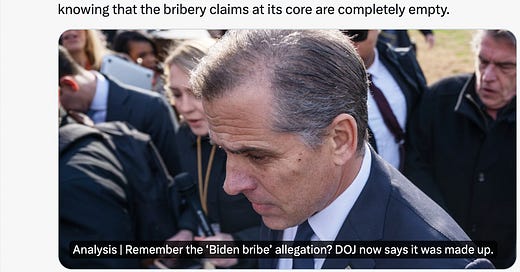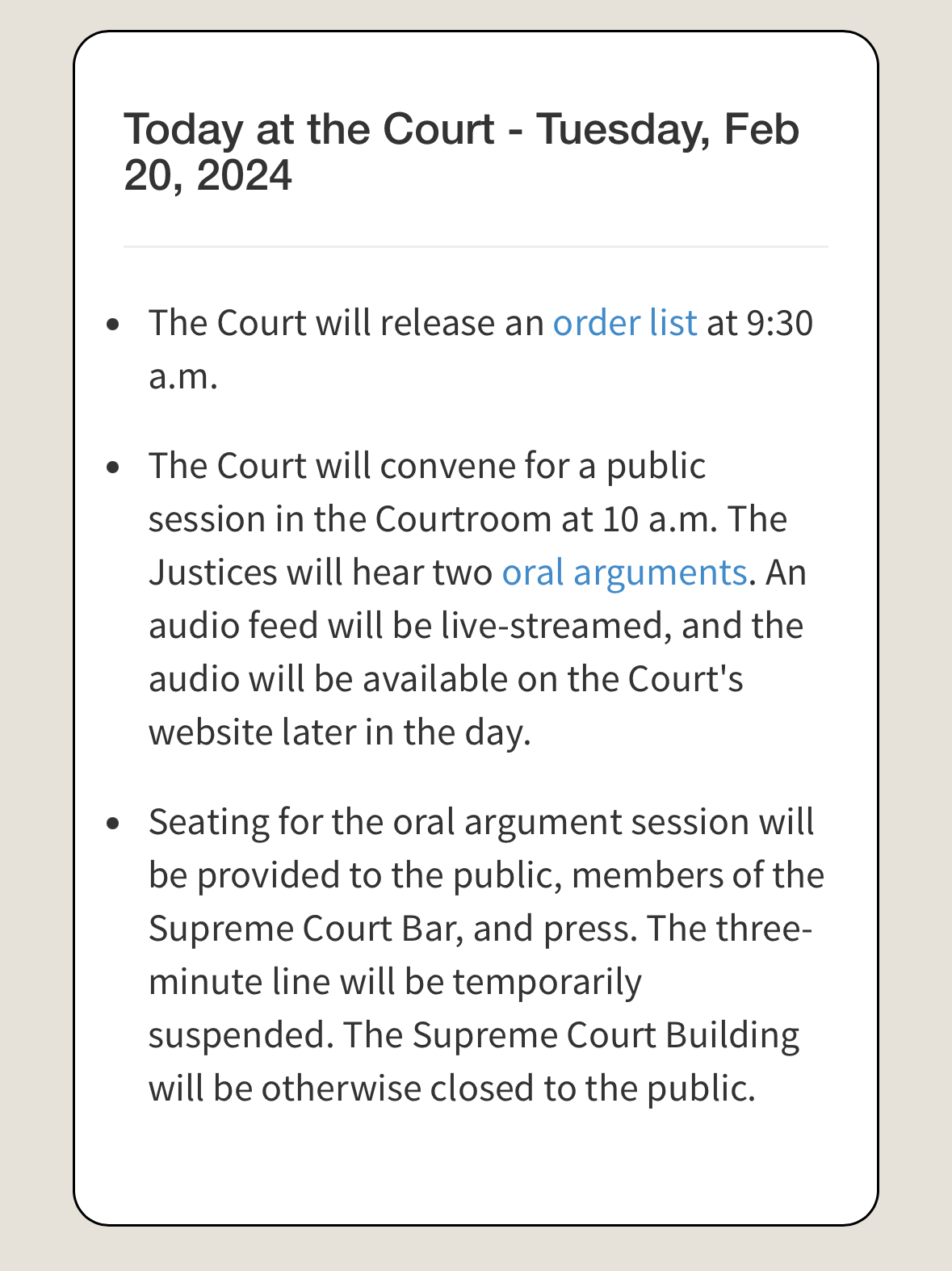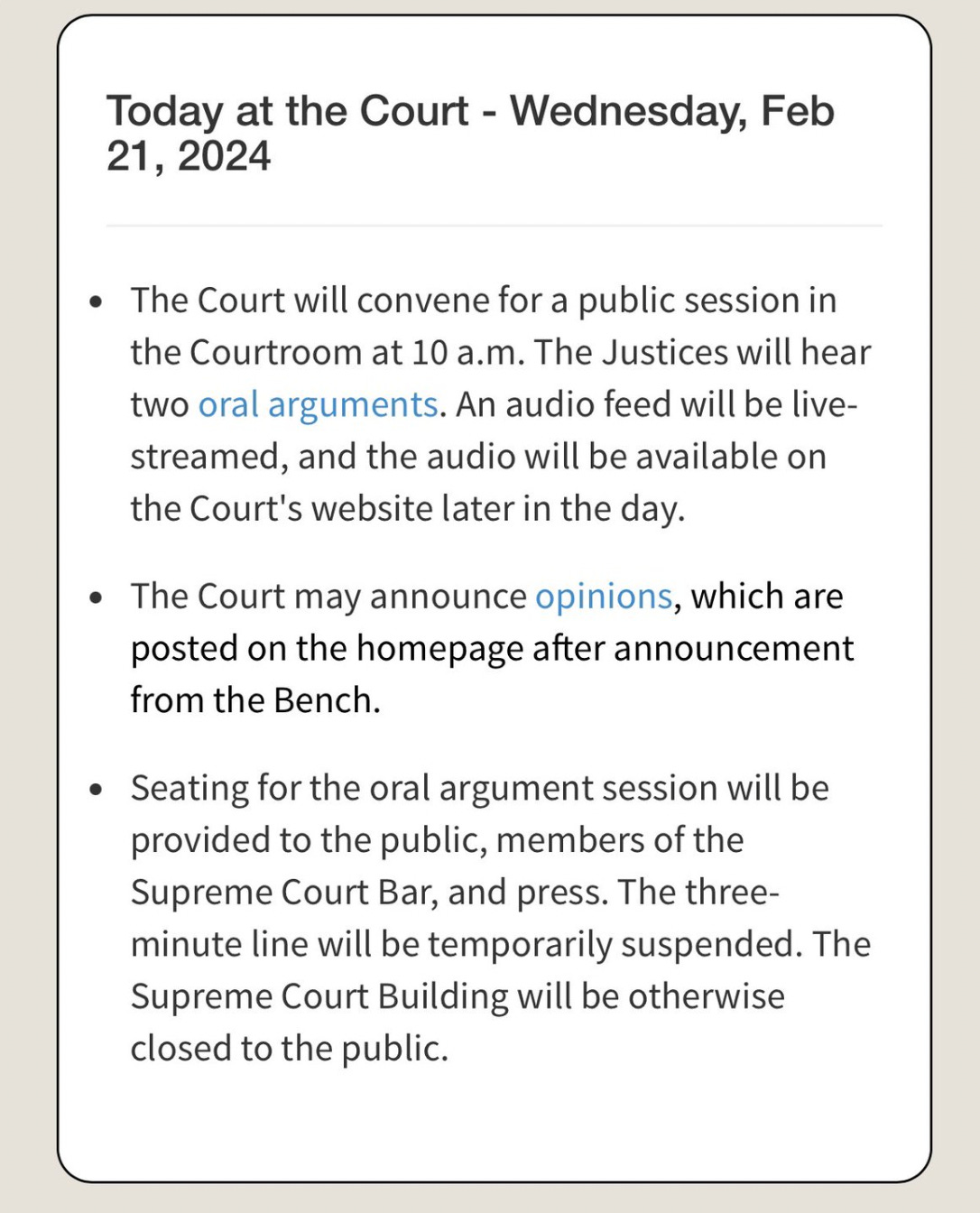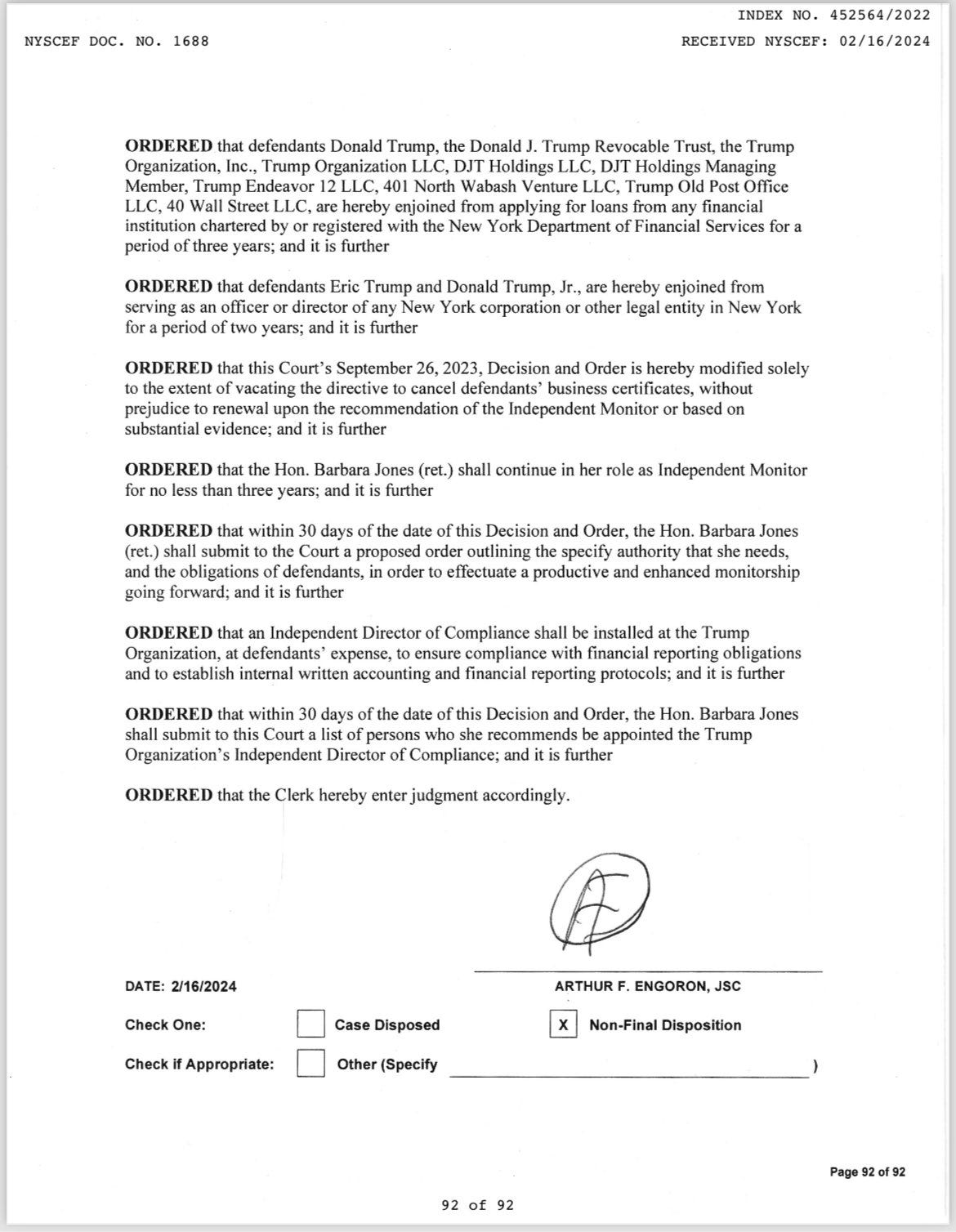Monday is President’s Day. When our kids were little, we always celebrated. As a federal employee, I got the day off at home with them. That usually meant cake and lots of time outside. Because we were nerdy, we would also spend some time talking about the kinds of honest, decent presidents our country had. Men, who, while never perfect, were good role models and good public servants. One lazy holiday afternoon, we were all lying down on our trampoline, looking up into the leaves of a big oak tree while the kids vigorously debated the merits of their favorite presidents. It made me feel like we were doing something right if they knew the names, some details, and the order the presidents came in. Passing on the history felt important to me.
The kids also knew their least favorite president. That was because in fourth grade, when everyone in the class had to write a report on a different president, our oldest drew Warren G. Harding. He was, to say the least, disappointed. Harding’s administration was involved in the Teapot Dome bribery scandal, and one of his cabinet secretaries was convicted in a scheme involving federal oil leases. At least, we told him, you didn’t get Richard Nixon. Even as little kids, they understood that corruption and the presidency didn’t mix.
It’s too bad that lesson is lost on so many people in our country these days. The death of the Russian dissident Alexei Navalny, Putin’s adversary, should drive home the risks of permitting an authoritarian leader to take hold. It has not been. Instead, former Fox host Tucker Carlson is recently returned from a visit to Russia, where he proclaimed their grocery stores vastly superior to ours. House Republicans refuse to pass a support measure for the Ukrainians, who are fighting for themselves and also keeping Russia at bay from fights our country would have to become involved in. Republicans seem to have lost touch with what benefits Americans and with what merely benefits Trump (and, perhaps, some of his less savory backers).
Whether Trump was explicitly involved with Putin and Russia ahead of the 2016 election as so many believed, especially when he called on Putin—"Russia if you’re listening”—for help with the election; under Trump’s leadership, the Republican Party has drawn inexplicably close to support for Moscow and the values of that formerly communist and currently authoritarian society. And still, the fever dream that is Trump has not broken.
This week, when we celebrate President’s Day, we are also a country that must live with the knowledge that it’s possible for Donald Trump to return to power. The Supreme Court is in the position of deciding whether Trump will be tried for his role in election interference & January 6 before the election. If they delay the matter, the case will get sidelined or perhaps permanently derailed if he wins the election. If the Supreme Court declines to hear Trump’s appeal or even if it were to take the case but set it on a tight timeline, it’s still possible for a jury of Donald Trump’s peers to decide the case before November.
Because this single decision before the Court is so important, it set off a lot of interest when it updated its calendar for this week. In addition to hearing the cases already scheduled for argument, the Court will release orders on Tuesday and “may” announce opinions on Wednesday. The orders list on Tuesday could involve the Court’s decision on how the presidential immunity appeal will be handled, and, as a bonus, the opinions on Wednesday could include a decision in the 14th Amendment case. Note that the operative word for both is “could.” The Supreme Court does not signal in advance what orders or decisions it is going to hand down, only giving us a heads-up to be prepared for them in any of its pending cases.
Also, on Wednesday, SCOTUS will hear argument in Kinder Morgan v. EPA, a case that has been consolidated with three others, Ohio v. EPA, American Forest & Paper v. EPA, and, U.S. Steel v. EPA to challenge the EPA’s ability to regulate air pollution. While we pin our hopes on the Supreme Court to do the right thing in democracy cases involving Trump, there are still plenty of other issues before the Court to be concerned about. Unfortunately, with the focus on the former president, it can be hard to spare attention for other matters that are critically important.
Kinder Morgan, Inc. is a large North American energy infrastructure company. It owns miles of oil and gas pipelines and terminals. Kinder Morgan and its fellow plaintiffs objected to the implementation of EPA’s “good neighbor plan,” which would protect states that are downwind from producers of high levels of ozone pollution. The case has gone straight to oral argument off of the shadow docket on a fast track, permitting the Court to decide whether the good neighbor plan should be put on pause while the litigation proceeds.
Preventing the plan from going into effect would permit massive amounts of air pollution to be spewed into the air in the meantime. The EPA suggests upwind states would get away with emitting approximately 70,000 additional tons of nitrous oxide, which creates smog, by the peak of summer 2026, if the plan doesn’t go into effect immediately. They say that could result in 1300 premature deaths and exacerbation of problems for people with asthma and other respiratory problems, including increased hospital visits. It’s an important issue and the Court’s decision may shape EPA’s ability to engage in regulation of air pollution going forward. Taking the case like this off of the shadow docket is concerning—one of the themes of this term at the Court is doing away with the ability of agencies to set standards for big business, and the stage is set for that here. We may get some sense of where the Court is during oral argument, although in most cases, it’s difficult to read the tea leaves accurately.
We’ll also keep our eyes on Fulton County, Georgia, again this week, where Tuesday brings a hearing that will be held privately on privilege issues in the wake of last week’s hearing on defense allegations DA Fani Willis should be disqualified. The Judge may hear closing arguments on that issue later in the week, but it’s not clear right now when we should expect a ruling. Some key evidence that emerged last week was that Nathan Wade was not Willis’ first choice for lead counsel in the case but that others, including former Georgia Governor Roy Barnes, rejected her offer to serve as the special prosecutor. Barnes testified he rejected the role for financial reasons and also because he didn’t want to have to deal with the risks to his personal security that taking on the case would bring. His testimony casts Willis’ decision to hire Wade in a different light, helping us better understand that her choices were limited.
Two things are clear: (1) at least so far, the defendants have failed to prove a financial conflict of interest that would satisfy Georgia standards for disqualifying Willis from prosecuting the case, and (2) a man is not a plan.
In New York, Judge Engoron has issued his ruling in the New York civil fraud case against Trump. His decision will keep Trump under the thumb of retired judge and thorn in Trump’s side (even though she was his pick for the job), Barbara Jones for three more years. The big question is how Trump is going to come up with the cash and collateral for the ginormous bond he needs to take an appeal.
Judge Engoron backed away from his earlier decision to suspend Trump’s ability to do business in New York in favor of imposing a series of limitations for the next three years. This makes the case more readily affirmable but a higher court but leaves it with some real teeth, including massive damages—more than $455 million between the judgment itself and an add-on of pre-judgment interest. Trump Organization is also under serious oversight just as Trump scrambles to figure out how to fund the appellate bond (called an “undertaking” in New York law) in this case and in the second E. Jean Carroll case. The oversight will make it impossible to engage in the sort of manipulations that got Trump into trouble in the first place to raise the bond amount. Trump has 30 days from the formal entry of the judgment against him to take his appeal.
President Biden’s brother, James, is scheduled to give an interview to the House Oversight Committee on Capitol Hill on Wednesday.
James Biden is being interviewed as part of an effort by House Republicans to impeach the President. But that effort has been called into question by the indictment, last week, of the FBI source Republicans based their allegations on. It turns out that the source, now indicted defendant Alexander Smirnov, fabricated a story about Biden and a $5 million bribe that Republicans ran with, claiming the Biden’s were a crime family and the President should be impeached. Smirnov will be in court Tuesday morning for arraignment and DOJ will ask the Judge to keep him in custody, suggesting they may believe he’s a flight risk.
Smirnov was indicted by David Weiss, the Trump U.S. Attorney who was kept on to finish the Hunter Biden investigation. Weiss is now the Special Counsel for that matter; in other words, no special friend doing any favors for Joe Biden.
Why would the GOP forge ahead with impeachment hearings despite the clear repudiation of their claims? Maryland Congressman Jamie Raskin, the top Democrat on the Oversight Committee, said after the indictment that Republicans should “end their doomed impeachment inquiry,” which he argued has “always been a tissue of lies built on conspiracy theories.”
Raskin said that if he chaired Oversight, he’d be focusing on issues that are important to Americans, like gun violence. But he does not chair the committee and the House GOP seems to lack any agenda beyond its efforts to dirty up President Biden. That’s been top of Trump’s list since at least his 2019 call with Ukrainian President Zelensky, the one that led to Trump’s first impeachment. In that call, Trump tried to bargain to release the security aid Congress had already allocated to Ukraine in exchange for a manufactured investigation into Biden from the Ukrainians. Even before Biden became the Democratic nominee in 2020, it’s clear Trump viewed him as a formidable opponent, one he would go to any lengths to push back against, including with fabricated investigations and evidence. That now seems to be the official priority of the Republican Party. It’s interesting to note—they still fear Biden.
Friday, the defendants in the Mar-a-Lago case, including Trump, have responses due in their discovery dispute with the government. Judge Aileen Cannon continues to string out the timeline, permitting this issue to unnecessarily consume weeks of briefing time. But we are getting close to the point where she must make decisions on issues involving both unclassified and classified discovery, and the Special Counsel’s office will have to reach a decision about appealing her if the rulings are as unfavorable as they have been to date. Unfortunately, common wisdom is it’s too late for this case to go to trial before the election, and indeed, it would take a moon shot. Trump is likely to go into the Republican convention and the election without being held accountable for dangerous mishandling of classified materials—something that should be unthinkable and would have been for Republicans in the pre-Trump era.
Trump should be asked explicitly, every time he’s questioned by anyone in the press, whether he would shut down federal criminal prosecutions against him instead of letting them run their lawful course if he’s reelected. Since he’s been indicted by a grand jury, there is absolutely no rationale for abusing presidential power to short-circuit the rule of law. Of course, Trump will say it’s all a witch hunt, but getting him on record here may be the only form of accountability we’re going to see for the documents case in advance of November, as limited and unsatisfactory as it would be. Forcing Trump to say what he would do and hearing the explanation could prove to be a forceful experience for the “it’s not going to be that bad” crowd.
That’s where we are on President’s Day 2024.
Simply incredible.
Thanks for being here with me at Civil Discourse. I appreciate those of you who are able to support my work with paid subscriptions, which let me devote more time and resources to this work. Over the next couple of weeks, and as the news cycle permits, we’ll devote some time to reviewing election laws and voting rights laws and to understand the protections we have (and the ones we’ve lost) as we get closer to the election. This should help us figure out how best to focus our efforts for 2024. I hope you’ll find this background work to be helpful and that you’ll share it freely with others! It’s more important than ever that we make sure Trump doesn’t return to the White House.
We’re in this together,
Joyce









Thanks Joyce, we are living in a reality I never thought would come to pass, 30 plus percent of the citizens willing to vote for a cheat, imposter, racist, rapist , betrayer and traitor. I am not hopeful that SCOTUS will do the right thing. We have to get out the vote and we should not fret over the courts because they will do everything to tip the scales. There is no more honor in the Supreme Court.
Your reflection on President Harding was interesting. Just like with Rachel Maddow’s book Prequel, even through dark and horrific times, we made it through and kept our democracy intact. I’m hopeful that we will prevail. I have a question though, when Trump goes to post his bond, will the public know the source of the money?
Your writings are much appreciated 🙏